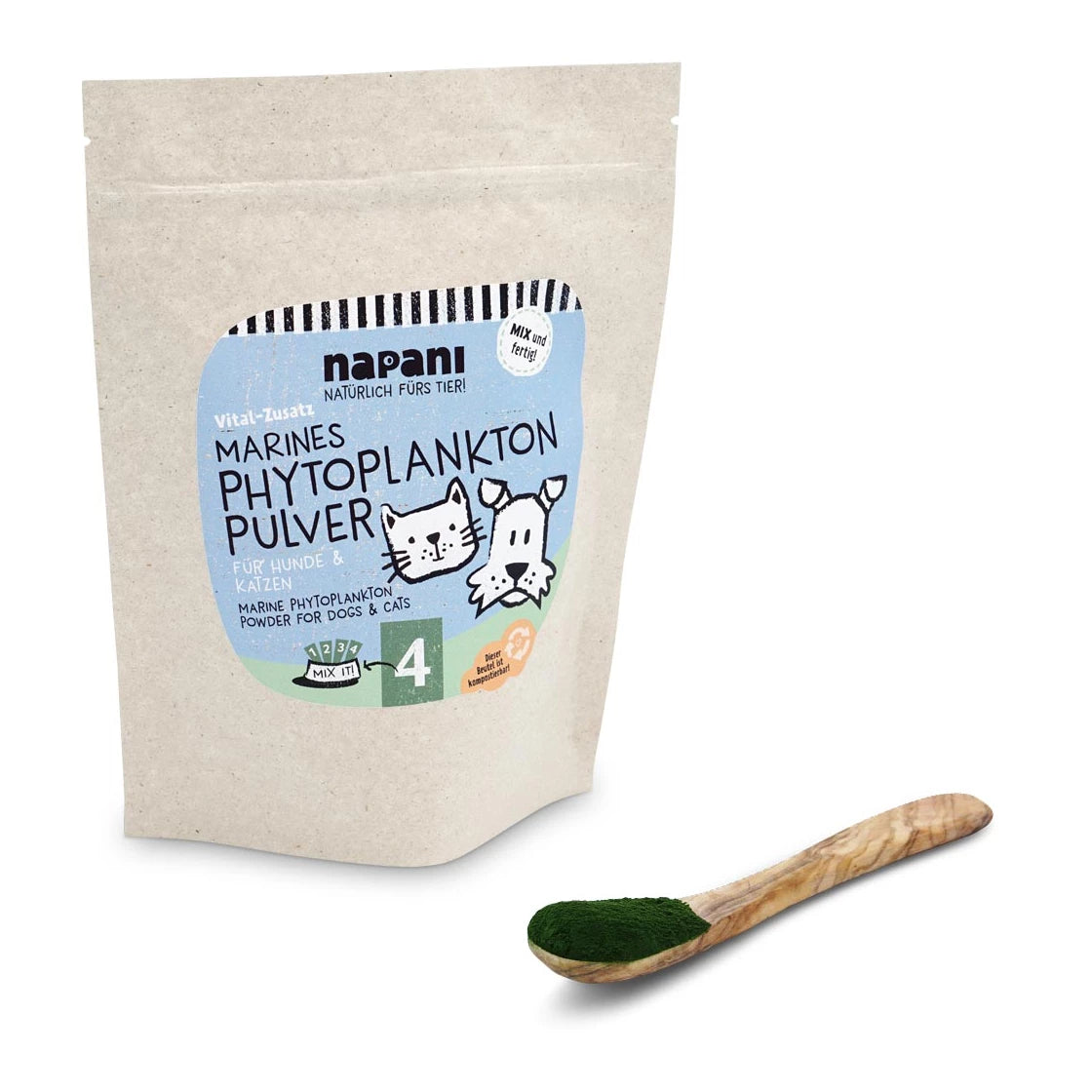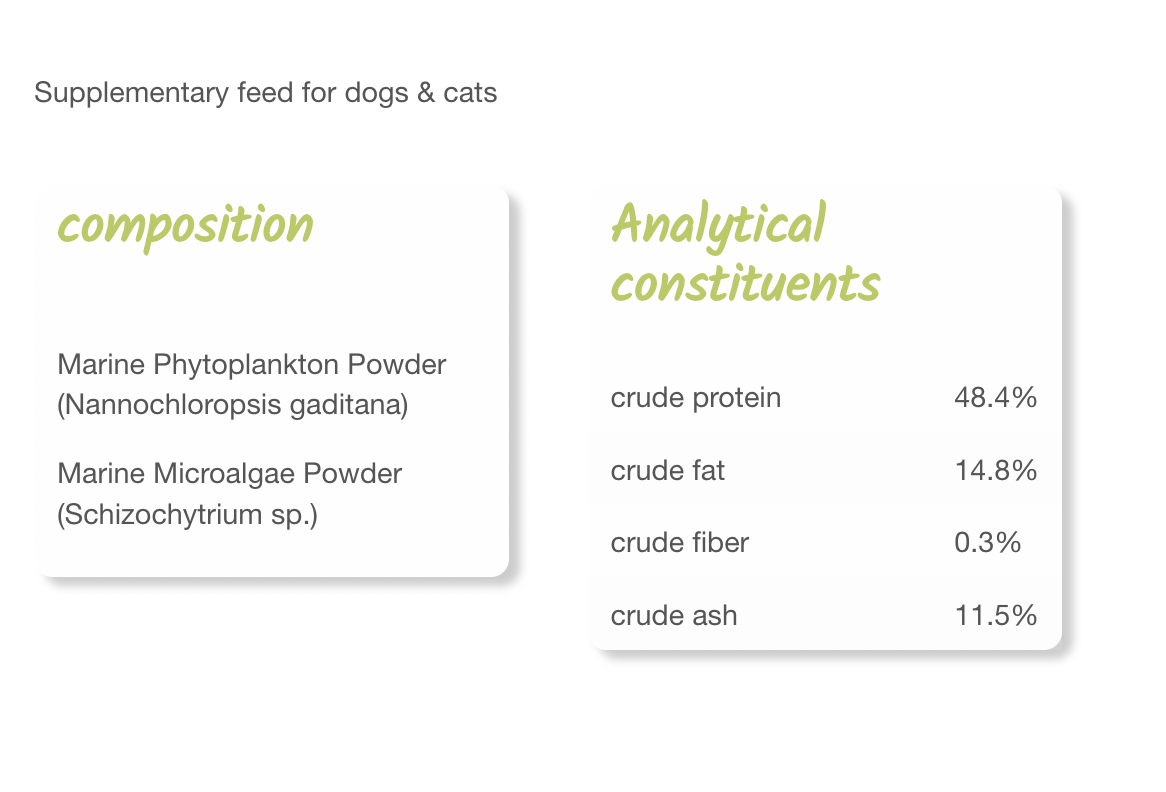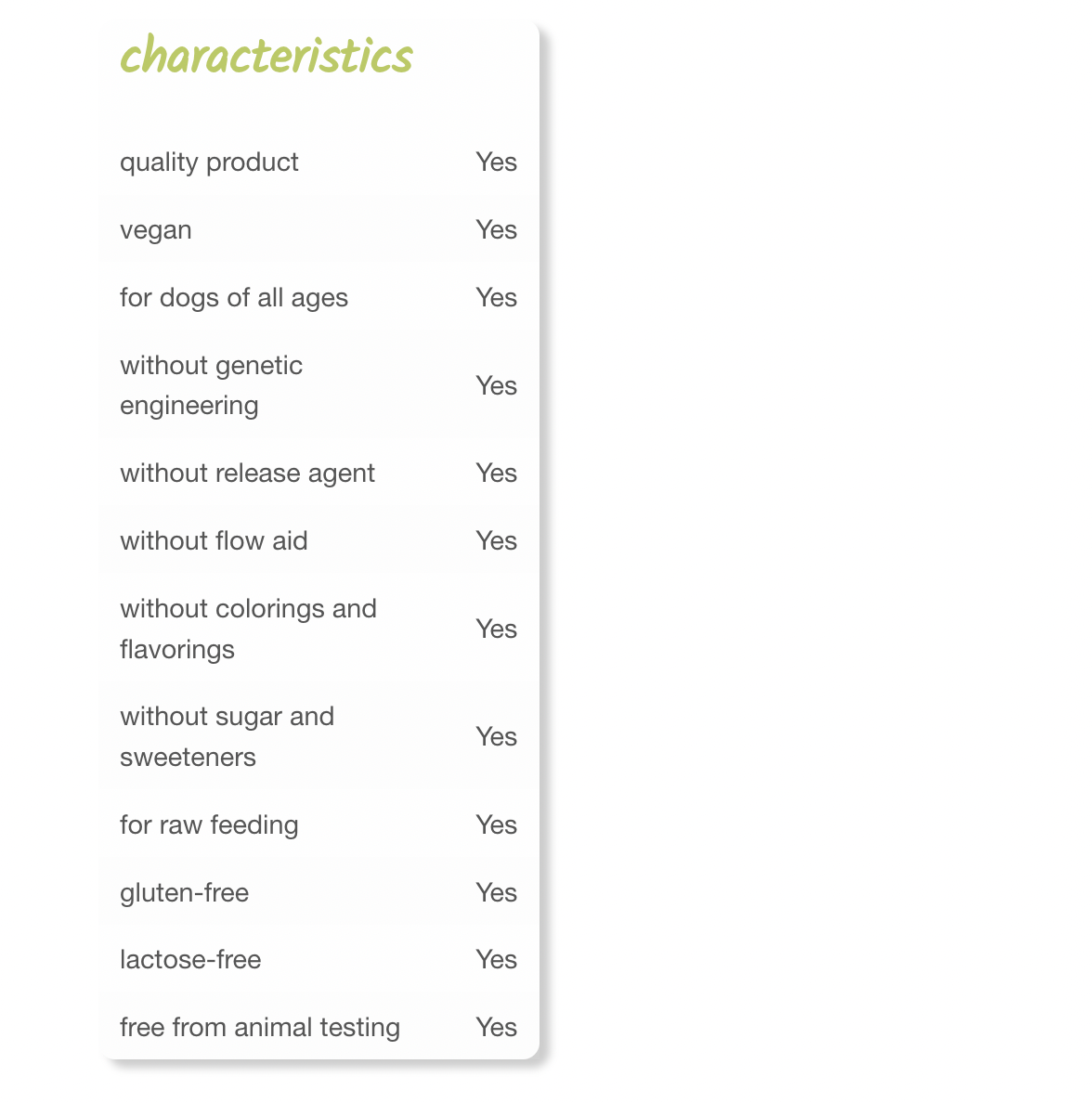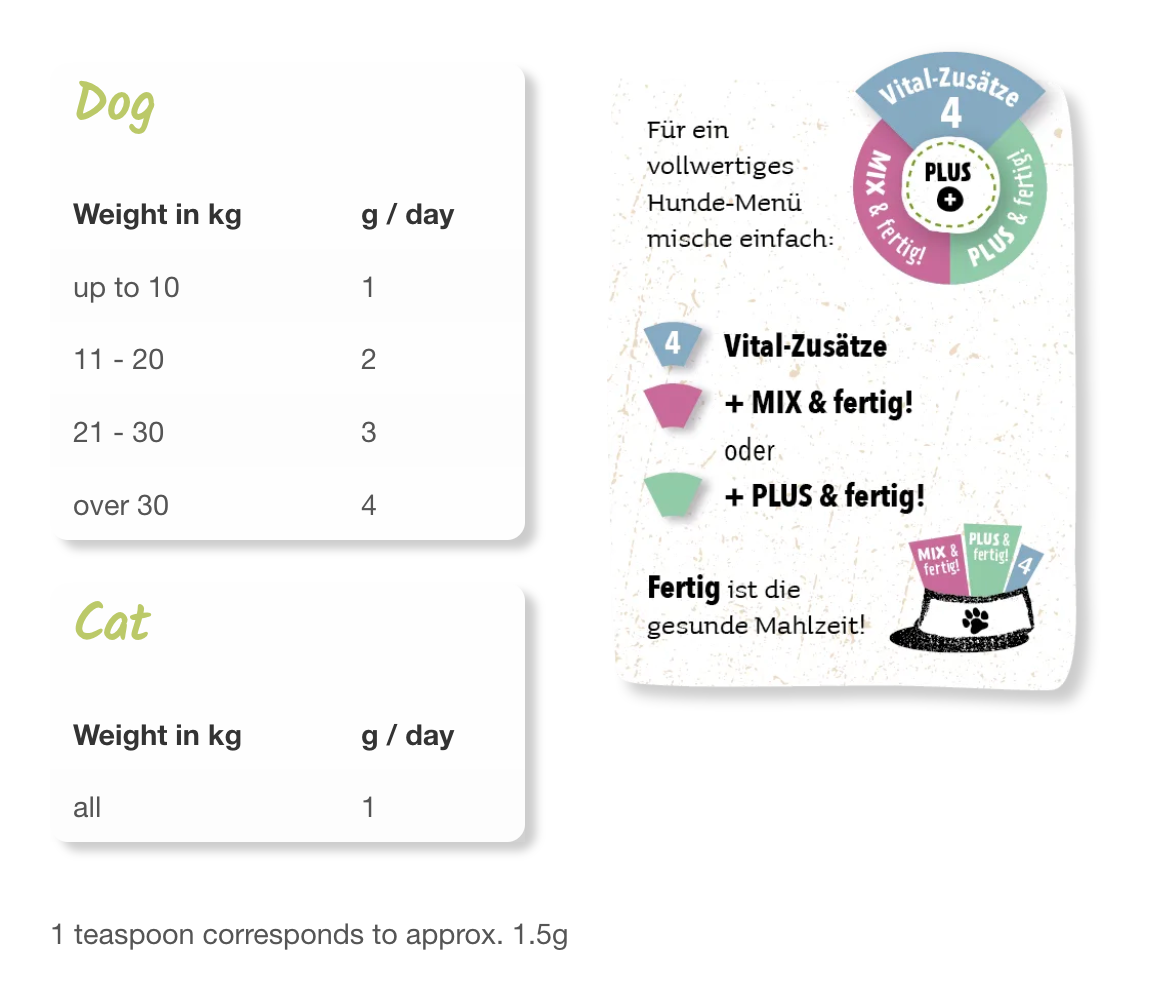napani
Marine Phytoplankton Powder (For Dogs & Cats) 150g
Kan beschikbaarheid voor afhalen niet laden
Marine Phytoplankton - the plant-based Omega 3 source
What is phytoplankton?
Phytoplankton are tiny, microscopic plants - the origin of the food chain in the ocean, so to speak. All life depends on them. They are one of the most valuable sources of food on earth. It is not the fish themselves that produce omega-3 fatty acids, but the phytoplankton that the fish ingest with their food. Phytoplankton has a high content of polyunsaturated fatty acids from the omega-3 fatty acid series.
What can microalgae do?
In addition to the high concentrations of omega-3 fatty acids, the microalgae Schizochytrium sp. also contains other beneficial ingredients, such as proteins, vitamins, minerals and antioxidants. Schizochytrium sp. is an excellent source of DHA - this is a long-chain omega-3 fatty acid that offers a variety of health benefits. DHA is particularly important for the development and function of the brain, eyes and cardiovascular system. Adequate intake is therefore important to reap the numerous health benefits.
Our powder contains both EPA (eicosapentaenoic acid) and DHA (decosahexaenoic acid)
Both omega-6 and omega-3 fatty acids must be supplied from outside (essential), as the body cannot "produce" them itself. Although dogs can metabolize the plant-based omega-3 precursor alpha-linolenic acid (ALA) (e.g. linseed oil) to generate energy and convert it into EPA (which in turn into DHA), this amount is quite small (approx. 2 - 5%). These biologically most active fatty acids, EPA (eicosapentaenoic acid) and DHA (docosahexaenoic acid), are not found in our dog's usual diet. Nowadays, too much omega-6 is administered in dog food - in meat, dry food, dairy products and some vegetable oils, such as sunflower and safflower oil. And because omega-6 and omega-3 compete for the same enzyme system, an imbalance can lead to the few omega-3 fatty acids being displaced unused. One consequence of this is that more arachidonic acid (from omega-6) is formed, which can promote or even cause inflammation and allergies. A sufficient supply of omega-3 with EPA can provide an anti-inflammatory counterbalance to the omega-6 fatty acids. Essential for BARF!
The ratio of polyunsaturated fatty acids we give our dog through his food is crucial for his health.
Many dog owners therefore use fish oil to compensate for or prevent an excess supply of Omega-6. But be careful! The fish are living creatures that consume phytoplankton as food. And humans kill and process the fish contaminated with radioactive radiation and pollutants (e.g. pesticides, hormones, drug residues and plasticizers) in order to obtain Omega-3. In addition, the toxins absorbed by the fish from the sea (heavy metals such as mercury, arsenic and lead) that are stored in the fatty tissue of the fish are also absorbed by the dog via the oil. Fish oil is a byproduct of the global fish industry - often from uncontrolled Asian factories with low quality standards - and goes through many different processing processes to create a product suitable for consumption from fish slaughterhouse waste. When fish oil/Omega-3 oil oxidizes, i.e. reacts with oxygen from the air, so-called lipid peroxides are formed, as well as harmful aldehydes and ketones. These oxidation byproducts are responsible for the unpleasant, rancid smell. There is scientific evidence that lipid peroxidation can lead to DNA damage. Not to forget the already problematic overfishing of the seas and the resulting growing dead zones in our oceans.
Our phytoplankton powder is a high-quality supplementary feed. It contains the essential omega-3 fatty acids EPA (eicosapentaenoic acid) and DHA (decosahexaenoic acid), trace elements, chlorophyll, amino acids, protein, carotenoids, antioxidants, amino acids and vitamins. Globally conscious> Compared to fish oil, the production of omega-3 fatty acids from Schizochytrium sp. and Nannochloropsis is more environmentally friendly and does not contribute to overfishing.
Just some of the areas where our phytoplankton can be used
To support
- the immune system
- brain and nerve function
- in brain development - important in puppy/young dog age
- skin health
- mobility and joint health
- the body's own cell function
- in inflammatory processes
- the gastrointestinal tract
- with increased energy requirements (dog sports, working dogs, etc.)
- the natural heart function
- when stressed
- as a plant-based Omega 6 balance
- with vegan feeding
- also with BARF
The polyunsaturated omega-3 fatty acid EPA is present in phytoplankton in its original, natural form (phospholipid) and thus has a higher bioavailability. The valuable fatty acids can therefore be absorbed better and more efficiently by the body.
BBD : 08-2027







